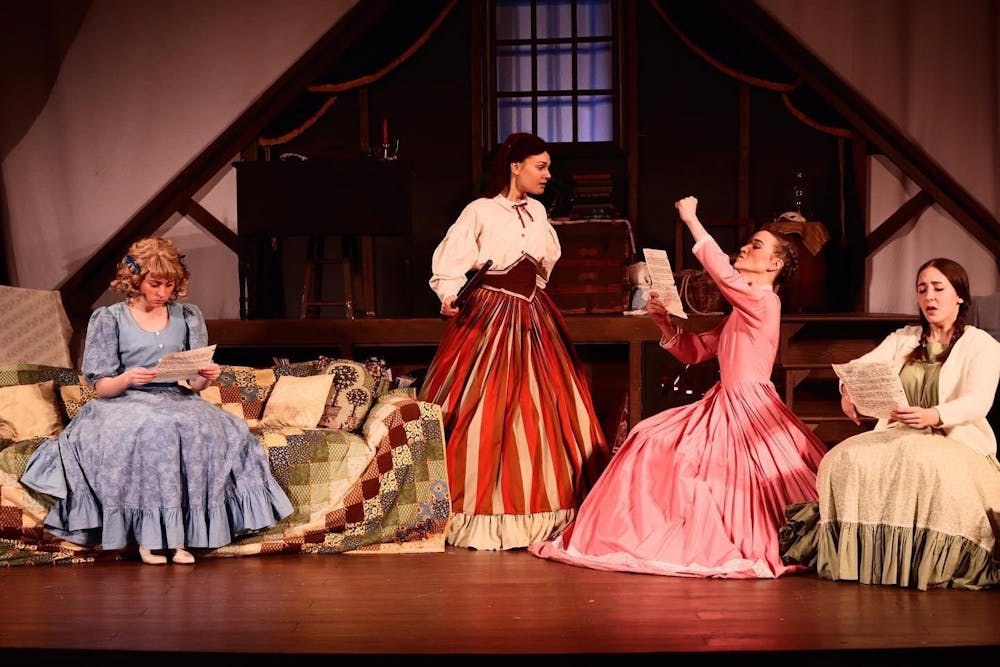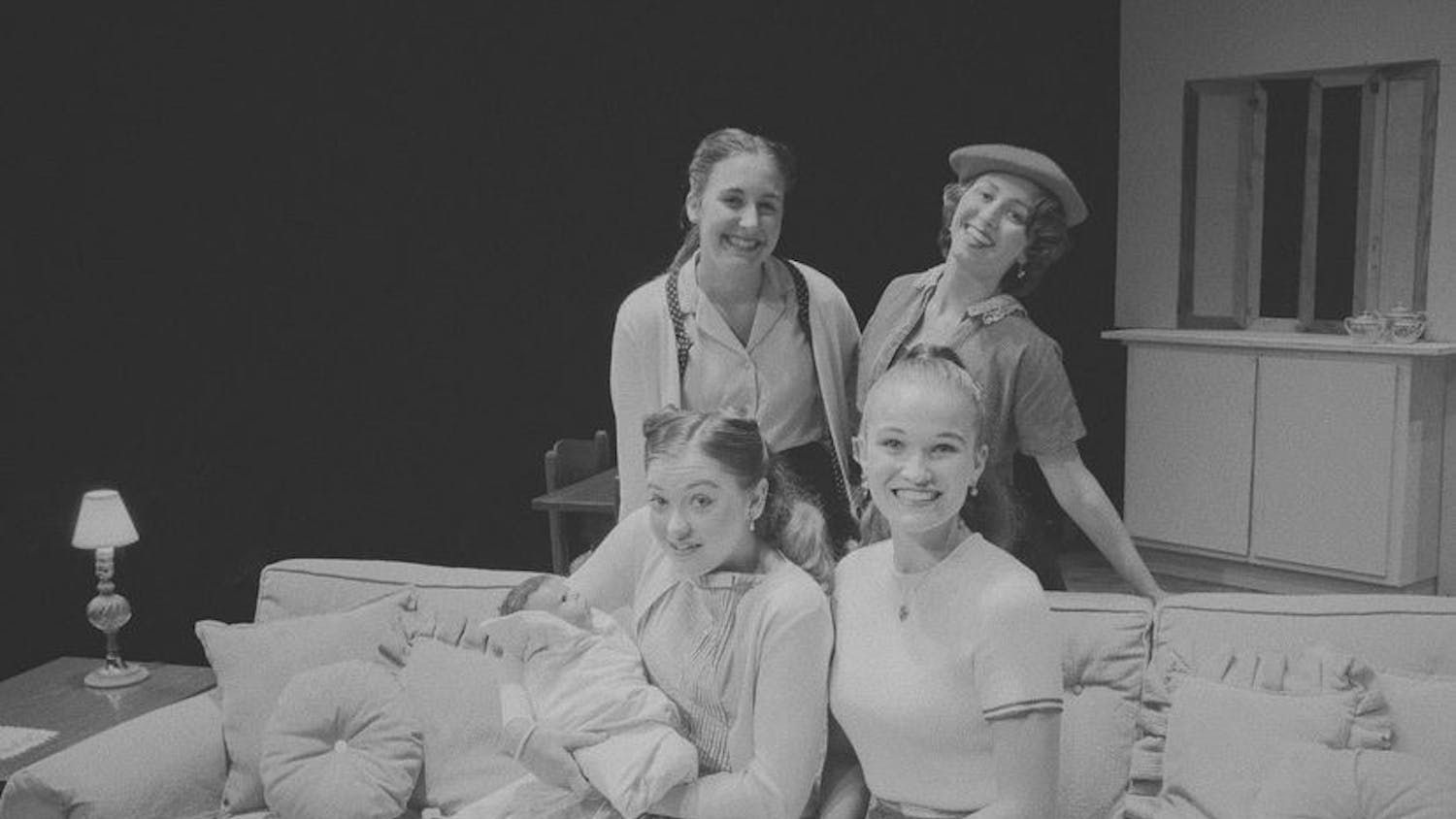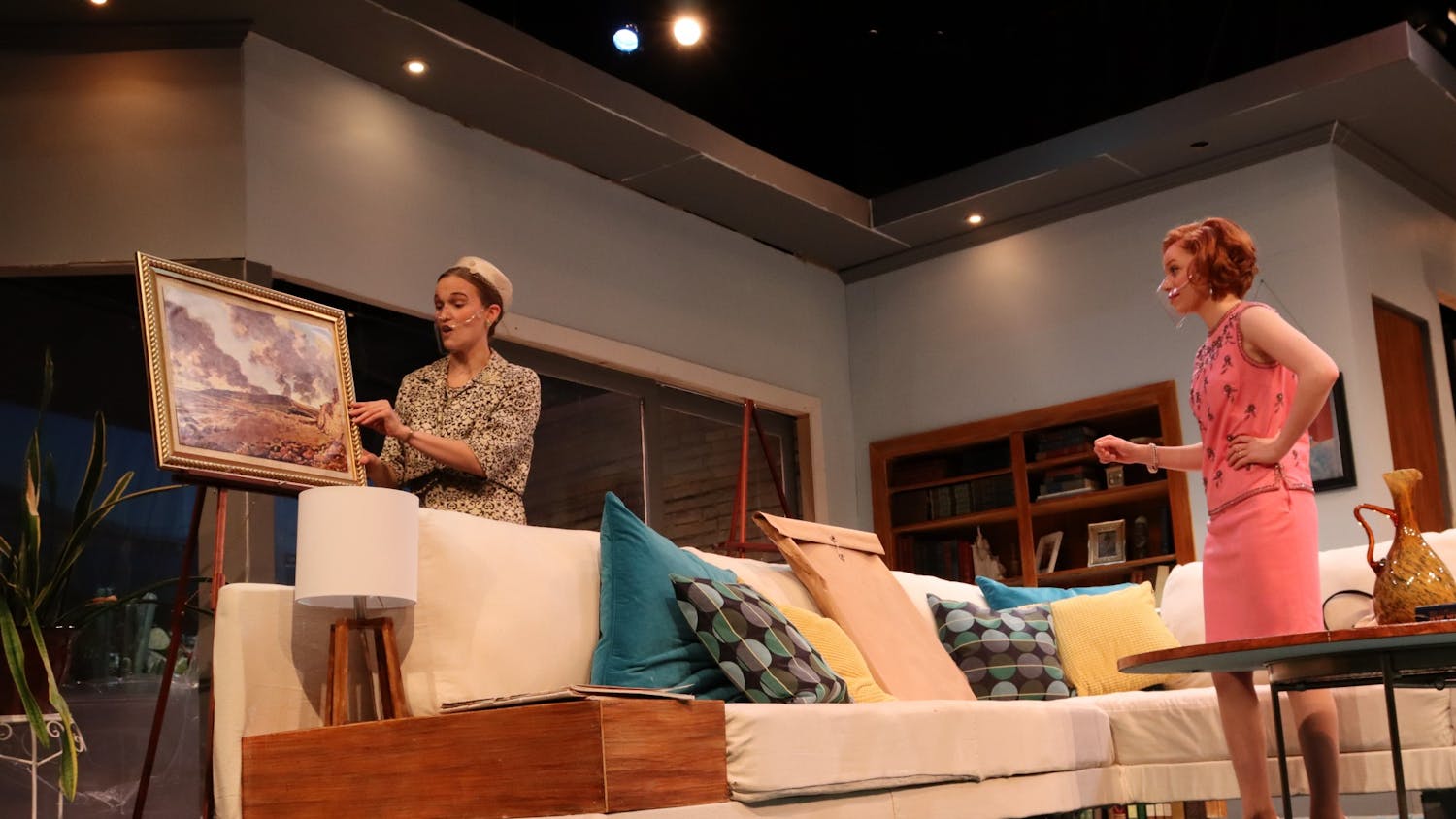“We must promise that it will always be the four March sisters, forever,” the character Jo March sings in the musical adaptation of “Little Women.”
Since its publication in 1868, “Little Women” has marked the story of the four March sisters in American literature forever. The book has been adapted into film seven times — most recently in 2019 — and into a Broadway production in 2015.
During J-term, the Taylor University Theatre Department performed three sold-out shows of the musical. Under the direction of Associate Professor of Music Conor Angell and Assistant Professor of Music Loralee Songer, the show highlighted the robust talent of the women in the department.
“We were thankful to have sold-out performances each night, which lent an electric atmosphere — the audience’s audible responses completed the actors’ work,” Angell said.
Set during the Civil War, the story unfolds as the women come of age, new dreams and experiences challenging their childhood ideologies. Their indicative quirks, journeys and complex personalities uniquely capture feminine experiences that resonate with audiences and actors alike.
The protagonist is the second-eldest sister, Jo, who yearns for more than the fatalistic trappings of marriage. In her first leading role, sophomore Elisabeth Nieshalla bonded deeply with her character, noticing their similarities and differences.
“Even once we opened, I was still learning so much about (Jo),” Nieshalla said. “It was like stepping into another person, and at the same time, you’re discovering things about yourself. That’s something I have never experienced before, spending so much time with a character and going that deep.”
The other sisters — Meg, Beth and Amy — were played by senior Emma Dahlquist, junior Claire Vock and junior Eleana Manning, respectively. Though the sisters carry an unbreakable bond, they have to reconcile their different preferences, goals and fates in life.
All the while, their beloved mother (affectionately called Marmee) helps them reconcile and appreciate their differences.
In her role as Marmee, senior Hannah Embree connected with Marmee’s leadership while her husband is away in the war.
“She kept her own sorrow from her girls to keep them safe, but in moments of vulnerability, was able to give them an example of strength within suffering,” Embree said. “I think Marmee’s cleverness and wisdom are characteristics that I resonate with. She knows more than I know about life, and it was a great challenge and joy to walk in her shoes for a few months.”
The sisters hold steadfast to one another through the unexpected journeys of life as Meg marries and has children, their neighbor and friend Laurie (senior Steven Day) shifts his affection from Jo to Amy and Beth passes from her long-term illness.
Although Jo never loses her fiery persistence, she becomes more open to the nuance of womanhood through the experiences of her sisters, mother and aunt (senior Aubri Skaggs).
“This journey follows (Jo) from proclaiming herself as this gutsy, uber-independent, tomboy (who’s) never going to get married to someone who (has) experienced deep grief, lost a friend and experienced failure when it came to selling her stories — and then overcoming that … and ultimately coming out, still her strong self, but in a softer way and embracing the beauties and hardships of life,” Nieshalla said.
The musical ends with a version of Jo who has found peace. Grief is intermingled, but she’s overjoyed to be among family, writing their stories and even sharing her life with her fiancé, Professor Bhaer (junior Israel Smith).
This finale brought Nieshalla comfort as well. When she auditioned, she hadn’t expected the leading role and felt pressure going into the production. However, just like Jo and all the characters of “Little Women,” the cast and crew supported one another and worked hard for a magical end, moving and inspiring those in attendance.
Embree found this connectedness with the audience to be one of the most unique aspects of the musical.
“I had never had an audience as loving and invested as we had for this show,” Embree said. “When we’d walk onstage, we could feel the energy and openness of the audience to this story.”
When all was sung and done, “Little Women” marked a big success for all those involved.
“But the greatest success is probably the growth in the members of the cast and crew — that they took this opportunity to improve their craft, taking notes and direction and working diligently to give the best offering they could,” Angell said. “It has been a joy to hear audience members talk about the way the story moved them. We’re glad when a show lets us consider and resonate with truths about humanity.”





